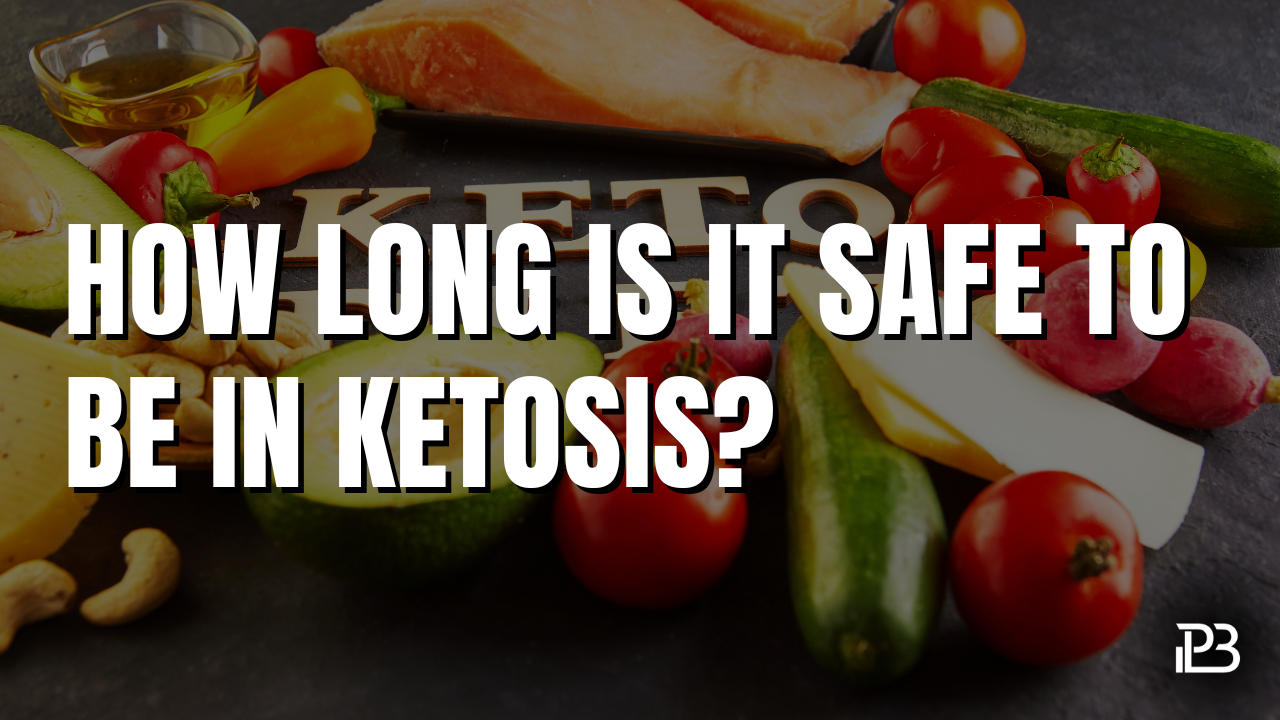The ketogenic diet, commonly known as the keto diet, has gained widespread popularity for its effectiveness in promoting weight loss and improving overall health. By significantly reducing carbohydrate intake and increasing fat consumption, the diet shifts the body into a state of ketosis, where it burns fat for fuel instead of carbohydrates. However, a common question arises: How long is it safe to be in ketosis? This article will explore the safety and potential long-term effects of maintaining ketosis.
Table of Contents
Understanding Ketosis
Ketosis is a metabolic state where the body uses ketones, produced from the breakdown of fats in the liver, as its primary energy source instead of glucose from carbohydrates. Achieving and maintaining ketosis requires strict adherence to a low-carb, high-fat diet, typically limiting carb intake to about 20-50 grams per day.
Short-Term vs. Long-Term Ketosis
Short-Term Ketosis
Short-term ketosis, lasting from a few weeks to a few months, is often used for rapid weight loss or to kickstart a healthier lifestyle. During this period, many people experience significant benefits, including weight loss, improved mental clarity, and increased energy levels. Short-term ketosis is generally considered safe for most people.
Long-Term Ketosis
Long-term ketosis involves maintaining the ketogenic diet for several months to years. Some individuals choose to stay in ketosis indefinitely due to the sustained benefits they experience. However, the safety and effects of long-term ketosis can vary from person to person and depend on individual health conditions and dietary practices.
Benefits of Long-Term Ketosis
1. Sustained Weight Loss
Many people find that long-term ketosis helps them maintain their weight loss goals and prevent weight regain. By continuing to limit carbs, the body remains in a fat-burning state, making it easier to manage weight.
2. Improved Blood Sugar Control
For individuals with type 2 diabetes or prediabetes, long-term ketosis can help stabilize blood sugar levels and improve insulin sensitivity. This can reduce the need for medication and lower the risk of diabetes-related complications.
3. Enhanced Mental Clarity and Focus
Long-term ketosis may support improved cognitive function, including better focus, memory, and mental clarity. This is because ketones are a more efficient fuel source for the brain compared to glucose.
4. Increased Energy Levels
Many people report sustained energy levels and reduced fatigue while in long-term ketosis. This can lead to improved physical performance and overall quality of life.
Potential Risks of Long-Term Ketosis
1. Nutrient Deficiencies
The restrictive nature of the keto diet can lead to nutrient deficiencies if not carefully managed. By eliminating or significantly reducing certain food groups, individuals may miss out on essential vitamins and minerals found in fruits, vegetables, and whole grains. It’s important to plan meals to include a variety of nutrient-dense, low-carb foods and consider supplementation if necessary.
2. Digestive Issues
Some people may experience digestive issues, such as constipation or diarrhea, due to the high fat intake and reduced fiber from certain high-carb foods. Ensuring adequate fiber intake from low-carb vegetables and staying hydrated can help alleviate these issues.
3. Increased Risk of Heart Disease
While the keto diet can improve certain heart disease risk factors, such as reducing triglycerides and increasing HDL (good) cholesterol, the high intake of saturated fats may raise LDL (bad) cholesterol levels in some individuals. It’s important to focus on healthy fats, such as those from avocados, nuts, seeds, and olive oil, and limit saturated fats from sources like red meat and processed foods.
4. Ketoacidosis
Ketoacidosis is a rare but serious condition where ketone levels become dangerously high, leading to acidic blood. This condition is more common in people with type 1 diabetes but can occur in those with type 2 diabetes or other medical conditions. Regular monitoring of ketone levels can help prevent this risk.
5. Social and Lifestyle Challenges
Maintaining long-term ketosis can be challenging in social situations and when dining out. The strict dietary restrictions can make it difficult to enjoy certain foods and participate in social events, potentially impacting quality of life.
Conclusion
The duration for which it is safe to be in ketosis varies from person to person and depends on individual health conditions and dietary practices. While many people experience significant benefits from short-term and long-term ketosis, it’s important to be aware of potential risks and manage them appropriately. Consulting with a healthcare professional before starting or continuing the keto diet is essential to ensure it is safe and suitable for your individual health needs.
Discover the Custom Keto Diet – Updated For 2024 – AOV Monster!
Ready to transform your health and achieve your weight loss goals with a personalized keto plan? The Custom Keto Diet – Updated For 2024 – AOV Monster! offers tailored meal plans that fit your unique needs and preferences. Take the guesswork out of your keto journey and enjoy delicious, easy-to-follow recipes designed to keep you in ketosis. Click here to get started and take the first step towards a healthier, happier you!
Disclaimer: I am an affiliate of the Custom Keto Diet.
What Foods Are in a Keto Diet? Discover the Key to Transforming Your Health
What is the Basic Rule of The Keto Diet?
What Does The Keto Diet Mean?
What Food is Not Allowed in Keto Diet?
Can You Eat Rice on a Keto Diet?




